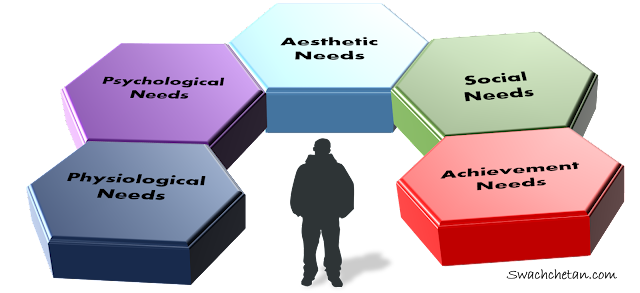 |
| Photo by VIACHESLAV KAN from Pexels |
IS STRESS NECESSARY FOR SURVIVAL?
As human beings, our needs are quite
unlimited.
As we keep fulfilling our needs, new
needs will keep surfacing.
Initially, for instance, we may eat to
satisfy our hunger. But gradually, we want to choose what we eat. Further, we
want specific dishes prepared exactly. We devise our own rules and regulations
as to how we should eat. We need a dining table, serving tray, vessels, spoons,
and scores of other things.
At first, we try to fulfill a basic physiological
need. But later, we would want to satisfy our psychological, aesthetic, social,
and achievement needs.
Thus, there is no end to what we need or
want.
However, it is not easy to fulfill all our
needs. As we live in a society, it becomes all the more difficult to satisfy all
our needs. The greater the complexity of a need, the greater will be the
difficulty in reaching the goals.
This difficulty sometimes results in not
being able to choose an appropriate goal. Even if such a goal is chosen, sometimes
it is not possible to reach the goal. (See Can we live without Goals?)
Thus, the extent of difficulty aroused
in achieving goals leads to the corresponding amount of stress experienced by
the individual.
Nature of Survival
The question arises now as to whether stress is necessary for our survival. It is not easy to say yes or no because our answer depends upon the nature of our survival.
If we live in a very sedate environment, not bothering about either to increase our needs or to change our pattern of living, we experience a minimum amount of stress.On the other hand, a harsher, more competitive, and dynamic environment places us in a position where stress becomes an integral part of our living.
Thus, the greater the competitive and dynamic nature of our environment, the greater is our stress.
It also depends upon our personality. Some of us prefer to go slow. Others want to move faster. The latter naturally face a greater amount of stress.
Hans Selye, a Canadian scientist who put forth the concept of Physiological Stress, classifies people into two categories -- the 'turtles' who go slow and lead a sedate life and the 'racehorses' who survive in a very fast-changing environment. Naturally, the latter is under more stress.
Do we need stress to survive? Who are better -- the turtles or the racehorses? According to Hans Selye, stress is very much essential for our survival.
Our stress should neither be too less nor too much. It should be at an optimum level where we can deal with the environment more effectively.
Selye calls this optimum amount of stress 'Eustress' or 'Good' stress.
What is Optimum
But the difficulty arises in terms of
determining the optimum amount of stress. As too much or too little stress is
highly subjective and relative, we do not know how much of it is essential or
good for the individual.
Sometimes an executive cannot perform
efficiently unless there is a considerable amount of stress. S/He feels
comfortable with it but s/he is also paying the price by developing
psychosomatic ailments like ulcers. Is this good for her/him or bad for her/him?
One does not know!
It becomes all the more difficult when we
speak of the day-to-day problems and stresses and how much of them is
essential.
Consider the following examples:
Ø A
student taking exams
Ø An
athlete running for a track event
Ø A
surgeon operating on a patient
Ø An executive facing a board meeting
Ø A homemaker without enough resources

Thus,
whether we like it or not, stress is part of our modern living and we cannot do
without it. It is very much essential for our survival, especially in a
competitive environment.
How to make stress your friend |
Kelly McGonigal
64 NAVA
VIDYA or 64 NEW SKILLS













Please do not include any spam links in the comment box.